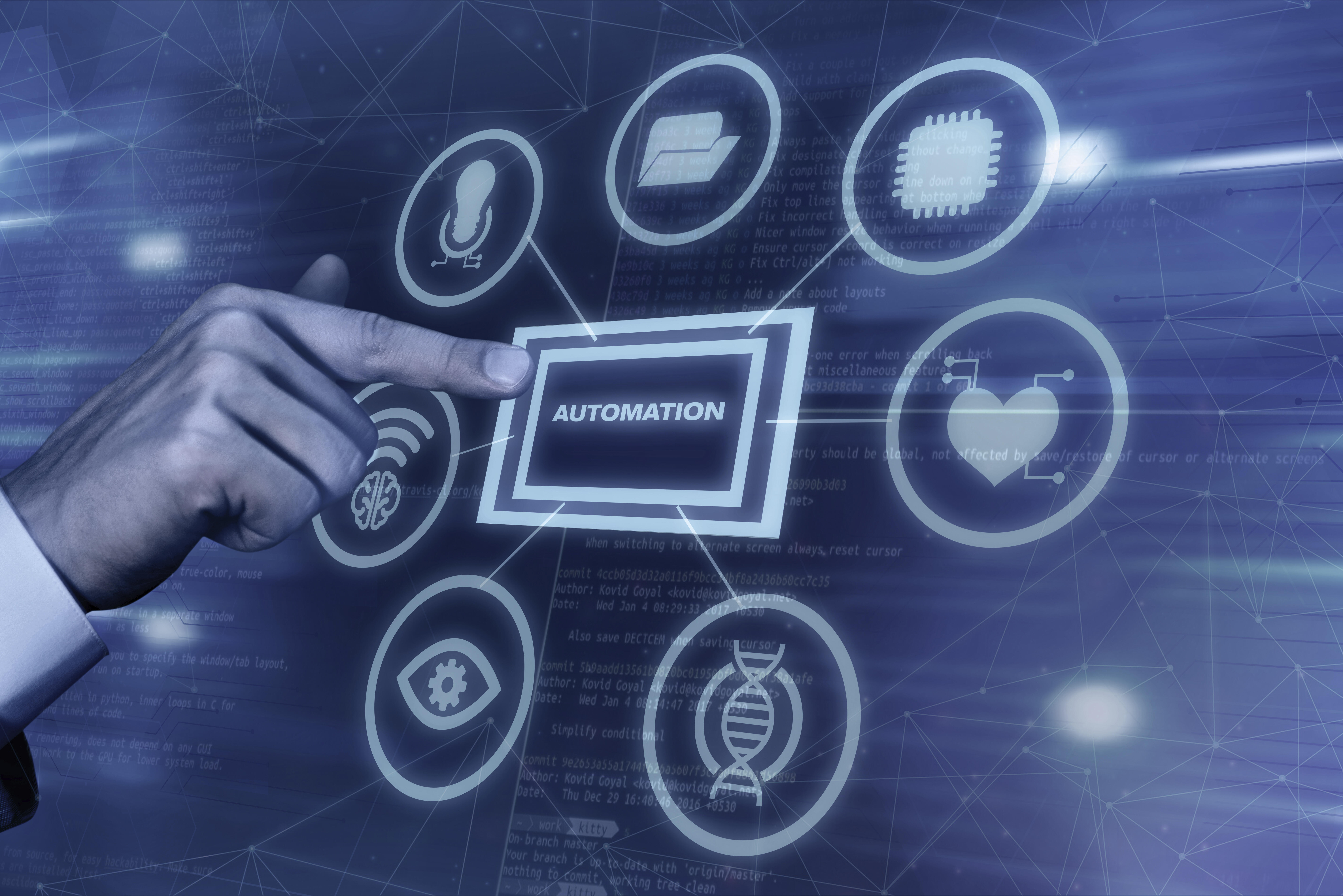Professional Improvement Goals in the AI Era: A Step-by-Step Guide
What are Professional Improvement Goals in the AI Era and Why Do they Matter?
We’re living in an era where technology is evolving faster than ever and artificial intelligence (AI) is leading the charge. No longer confined to science labs or tech giants, AI has become a mainstream force across nearly every industry. It’s automating routine tasks, analysing massive datasets in seconds, and even helping businesses make smarter decisions. From customer service chatbots to AI-assisted medical diagnostics, the technology is not just supporting human effort it’s starting to outperform it in many areas. As a result, the roles and responsibilities that once seemed secure are being redefined or replaced.
More importantly, AI is shifting the value of skills in the job market. Traditional expertise alone is no longer enough. Employers are looking for adaptable professionals who are willing to reskill, upskill, and engage with new tools. In this fast-paced environment, the idea of “catching up later” is becoming increasingly risky. Delaying your learning can mean falling behind permanently. To stay relevant, competitive, and fulfilled in your career, continuous learning isn’t just a good habit it’s a survival strategy. Embracing lifelong learning and adapting your skillset is now the key to future-proofing your professional journey in the AI-driven world.
How AI is Changing the Rules of Work?
AI isn’t just about robots and data it’s about intelligent systems that can analyse, learn, and even create. In sectors like healthcare, education, marketing, finance, and logistics, AI is now a core part of everyday operations. This shift means that the demand for traditional roles is changing, and new roles like AI trainers, prompt engineers, and ethics advisors—are emerging. Whether you're a teacher or a team leader, understanding and adapting to this shift is critical.
Who is this Guide for?
This guide is designed for anyone who wants to grow professionally in the AI age. Whether you're an educator wanting to stay updated, a professional aiming to future-proof your career, a student exploring smart career moves, or someone shifting careers entirely this step-by-step guide will help you move forward with clarity.
What you’ll Get from this Guide?
You don’t need to be a tech expert to benefit from AI. This guide is written in simple language and includes practical steps you can actually follow. Our focus is on helping you set clear, achievable professional improvement goals that align with the realities of today’s job market. With a global perspective and flexible approach, you’ll find strategies here that apply no matter where you are or what stage you’re at in your journey.
How AI Is Redefining Career Growth and the Need for New Goals?
Professional growth doesn't happen by accident; it's guided by purpose, planning, and persistence. That’s where career development objectives come in. These are clear, strategic targets you set to enhance your skills, knowledge, or performance in a way that moves your career forward. Unlike vague resolutions, these objectives are focused, measurable, and aligned with where you want to go professionally. Whether you're aiming to learn a new skill, earn a certification, or take on a leadership role, these objectives help turn ambition into action.
AI’s Disruption and Opportunity
Artificial intelligence is dramatically changing how businesses operate, which means the skills in demand are evolving just as quickly. Many repetitive or rule-based tasks are being automated by AI, leading to a shift in what employer’s value most creative thinking, problem-solving, emotional intelligence, and the ability to work alongside intelligent systems. At the same time, new career paths are opening up in fields like data science, AI ethics, machine learning operations, and prompt engineering. Understanding this shift is key to staying relevant in a changing job market.
Why are AI-Relevant Goals Critical?
It’s no longer enough to simply “do your job well.” In the AI era, you must actively adapt. Setting career advancement objectives tailored to this new landscape helps you stay ahead of the curve. It enables you to respond to industry changes with confidence instead of fear. Whether you're a teacher integrating AI tools into your lessons or a marketer learning automation platforms, your willingness to grow makes you not just employable but indispensable. The future belongs to those who prepare for it today.
How Can you Evaluate Your Current Skills Before Setting AI-Focused Goals?
Before setting any new direction, it’s important to understand where you’re starting from. Self-assessment is the first step toward intentional growth. Reflect on your current job role, the tasks you perform regularly, and the tools you use. Ask yourself: What am I good at? What do I enjoy doing? Where do I struggle? You can use tools like SWOT analysis (Strengths, Weaknesses, Opportunities, Threats), online skill audits, or personality-based career assessments to gain insights.
Some helpful reflection questions include:
- Which of my skills are still relevant in an AI-enhanced workplace?
- Am I using any AI tools already intentionally or unintentionally?
- What feedback have I received from peers or managers about areas for growth?
Identify Gaps that Matter in the AI-Driven Market
Once you have a clearer sense of your current strengths and weaknesses, the next step is to explore what’s missing. Look at job postings in your field or industry and note recurring AI-related tools or terms (like ChatGPT, data visualization, automation, etc.). Compare these requirements to your current skillset. The gap between what you can do now and what your future role may demand is where your learning should focus.
You don’t need to become a programmer overnight—but understanding AI basics, data handling, or ethical considerations could be valuable additions to your toolkit.
Align your Role to Future Possibilities
Imagine how your current role could evolve with AI. For example, if you're in marketing, you might begin exploring how AI helps with content creation or customer targeting. If you're a teacher, consider how AI can personalize learning. This mapping exercise helps you set realistic and meaningful career growth objectives that not only boost your skillset but also future-proof your career.
How do you Set SMART Goals that Align with the AI-Driven Future?
Setting vague goals like "I want to get better at AI" won’t lead to meaningful progress. That’s where the SMART framework comes in. SMART stands for:
- Specific: Clearly define what you want to achieve.
- Measurable: Choose a way to track your progress.
- Achievable: Be realistic about what you can accomplish.
- Relevant: Make sure the goal fits your career path or interests.
- Time-bound: Set a deadline to stay focused and motivated.
Instead of simply saying, “I want to learn AI,” a SMART version could be: “Complete an online beginner AI course within the next 8 weeks.”
Aligning Goals with AI Trends
To stay ahead in today’s job market, your goals should reflect how AI is impacting your industry. Are businesses using AI to streamline processes, analyse data, or personalize user experiences? Use these trends to shape your learning goals. For instance, if AI is transforming your field’s customer service models, you might set a goal to learn how chatbots and automation tools work.
Make sure each goal also fits into your broader vision for career advancement—this keeps your motivation high and your direction clear.
Examples of SMART AI-Aligned Goals
- Learn AI basics in 3 months using free or low-cost online platforms.
- Automate one task at work using an AI tool (like scheduling emails or analysing survey results).
- Complete an AI ethics or prompt engineering course by the end of the year.
By designing your professional improvement goals around the SMART model and current AI trends, you’ll make your career development more intentional, actionable, and future-ready.
Which AI Tools can Help you Grow Professionally and Stay on Track?
You don’t need to be a tech expert to start using AI. There are many beginner-friendly tools designed to help you work smarter, learn faster, and stay organized. Tools like Notion AI can help you summarize articles, generate project plans, and take smart notes. ChatGPT is another great assistant—it can explain complex concepts, generate content, answer questions, and even role-play interview scenarios. These tools aren’t just for tech workers they’re designed to assist marketers, teachers, students, freelancers, and professionals across industries.
AI for Goal Tracking and Time Management
Keeping up with goals can be tough, especially if you're juggling work and learning. Thankfully, AI tools can help here too. Apps like Motion or Todoist with AI integrations can automatically schedule your tasks, break large projects into steps, and send reminders. AI-enabled calendar tools can even suggest optimal study times based on your routine. For those who prefer a simple solution, tools like Notion AI or Trello with automation bots can track learning progress, mark completed tasks, and reflect on weekly accomplishments.
Learn AI Through Structured Courses
If you're serious about future-proofing your career, structured learning is key. Platforms like Learn AI (LAI) offer beginner to advanced AI courses that are globally accessible, self-paced, and career-focused. These courses can guide you from understanding AI basics to applying AI tools in your profession. Using these technologies can supercharge your journey toward achieving your career development objectives by making learning more accessible, consistent, and actionable no matter your current skill level.
How Do you Choose the Right AI Course to Match your Career Goals?
Choosing an AI course can feel overwhelming with the vast number of options available. To narrow down your choices, start by assessing your career goals. Are you looking to integrate AI into your current role or transition to a new career in AI? Once you know your objective, consider the following steps:
- Assess your current knowledge: If you're new to AI, start with introductory courses. If you're already familiar with the basics, opt for intermediate or specialized topics.
- Check course content: Review the syllabus to ensure it aligns with your goals. Does the course cover practical tools and real-world applications, or is it more theoretical?
- Consider learning style: Do you prefer self-paced learning, live sessions, or a mix of both?
Matching AI Course Content to your Goals
As you explore courses, think about how the content aligns with your professional improvement goals. For instance, if you're aiming to automate your work processes, look for courses that teach tools like machine learning or natural language processing. If you're in marketing, courses on AI in advertising or customer insights may be more relevant. Make sure the course covers the specific skills you need to advance in your career, and be mindful of certifications that might enhance your resume.
Highlight: Courses Available at Learn Artificial Intelligence (LAI)
For a structured, comprehensive learning path, Learn Artificial Intelligence (LAI) offers a wide range of courses suitable for various career stages. From beginner courses like “AI Fundamentals” to specialized tracks in AI ethics or machine learning applications, LAI provides options for professionals across industries. These courses are globally accessible and self-paced, making it easier for you to learn at your convenience. By selecting a course that fits both your current skill level and your career aspirations, you can make meaningful strides toward achieving your goals.
How Can you Build a Consistent AI-Enhanced Learning Routine?
One of the most effective ways to make steady progress is to create a structured weekly routine. Set aside specific times for learning—whether it’s an hour each morning or a couple of evenings per week. Block out time for both theory (like reading or watching course videos) and practice (like working on assignments or projects). Make learning a regular part of your week to build momentum and avoid procrastination.
Balancing Learning with Full-Time Jobs or Studies
Many professionals face the challenge of balancing learning with a full-time job or studies. The key is to integrate learning into your existing routine without feeling overwhelmed. For example, you could use lunch breaks or commute time to review course materials or listen to AI-related podcasts. If you're a full-time student, consider setting aside weekend time or evening hours to focus solely on AI learning. Flexibility is important, so adjust your schedule as needed to keep both work and learning on track.
Using AI Reminders, Planners, and Scheduling Tools
AI tools can help you stay organized and on top of your learning goals. Use AI-driven reminder apps like Google Calendar with AI assistant or Todoist, which automatically schedule and adjust your tasks based on your priorities. These tools can send you reminders for upcoming deadlines, study sessions, and even help you plan your tasks based on your current workload. AI planners like Notion AI can assist in tracking your progress, setting up goals, and creating to-do lists that adjust dynamically. With the support of these tools, you can keep your learning routine efficient and manageable.
How Do you Track Progress and Adjust your Goals?
Tracking your progress is essential to understanding how far you’ve come and staying motivated. One way to measure growth is by using progress tracking tools like Trello or Notion, which allow you to visualize your learning journey through checklists, boards, or calendars. You can create milestones for completing courses, certifications, or practical projects and celebrate when you achieve them. Marking off these milestones provides a tangible sense of accomplishment and can keep you motivated as you move forward.
Additionally, you can use tools like Google Sheets or Excel to track your progress manually. Set up a simple tracker with columns for goal description, target completion dates, and status updates. This method will give you a detailed view of your progress and help you stay focused.
How to Adjust Goals Based on Feedback or Changing Trends?
As you move through your learning journey, you’ll receive feedback from course instructors, peers, or even AI tools. Use this feedback to refine your goals. If you realize a certain topic requires more time or if trends in AI shift (e.g., new technologies or industry needs), adjusting your goals becomes essential to staying on track. For example, if you’re learning a skill and find that it's evolving rapidly, it might be beneficial to extend your timeline or focus on more advanced concepts to remain competitive.
Regularly reassess your goals to ensure they remain aligned with your career objectives.
Templates and Checklists for Staying on Track
To keep yourself organized, consider using ready-made templates and checklists. Platforms like Trello and Asana offer customizable templates for tracking goals, timelines, and tasks. You can also create your own checklists in Notion AI, where you can outline each step you need to take to meet your AI-related learning goals. These resources will help ensure that you remain consistent in tracking your progress and make any adjustments when needed.
Conclusion
As you reflect on what you’ve learned, you’ve gained valuable insights into the importance of setting clear goals and leveraging AI tools to advance your career. By assessing your strengths, identifying skill gaps, and creating a structured learning routine, you've laid the groundwork for continuous growth. Now, it’s time to take action. Choose one achievable goal today whether it’s enrolling in an AI course, implementing a new AI tool at work, or dedicating time each week for learning. The first step is crucial to making meaningful progress. To further your development, explore Learn Artificial Intelligence (LAI)'s range of courses and resources. These will help you work toward your professional improvement goals, equipping you with the knowledge and skills needed to stay competitive in the evolving AI-driven job market.








